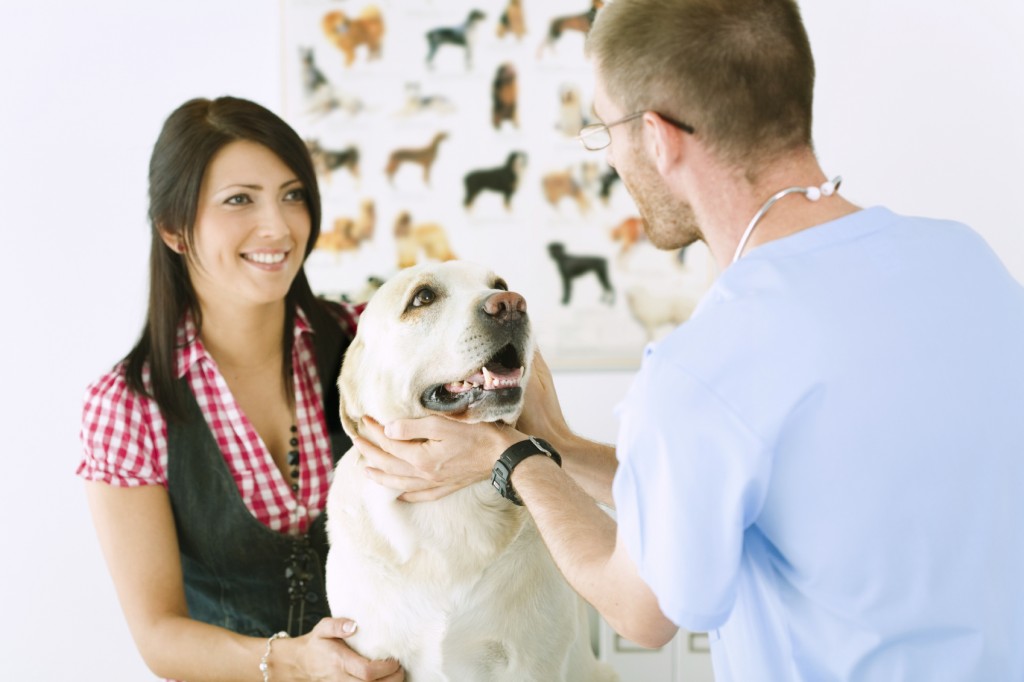What exactly is Melatonin?

Melatonin is a tranquilizing hormonal enhancement that may help treat restlessness, hyperactivity, anxiety and other conditions.
It is a natural hormone produced by the pineal gland, and pet owners prefer using this supplement for their pets, instead of medications that may contain elements that have damaging side effects.
Melatonin can also be found in some foods. It regulates sleep and wake cycles and also helps to support a healthy immune function. Melatonin is known for protecting cells against free radical damage.
Production & release in the body
Production and release of Melatonin in the brain is higher in the evening, and lower in the morning. Bright light inhibits the production of Melatonin. Melatonin is safely used by humans, dogs and cats for sleep disorders.
Melatonin use in both humans and pets have minimal side effects. Melatonin is produced at a higher level in children and declines after adolescence. It has lipid and water-soluble properties, so it readily crosses the blood-brain barrier.
Reduction in harmful radicals
In certain studies, it has been demonstrated to be more potent than vitamin E in neutralizing harmful peroxyl radicals that induce DNA damage.
Although Melatonin research has mainly targeted sleep and wake rhythms in humans, it has been shown to be beneficial in veterinary medicine as an aid for canine anxiety and stress disorders.
Is it FDA approved?
Although the FDA has not approved Melatonin for use in dogs, it is available over the counter. It shouldn’t be administered to your dog without first checking with your veterinarian, as it may react negatively in combination with other medications, make some medical conditions worse, and is dangerous for expectant dogs and puppies.
What can Melatonin be used for?

Here’s a list of things typically associated with melatonin usage:
- separation anxiety
- noise phobias
- flank alopecia
- canine stress
- chronic dysfunction syndrome
- social phobia of other dogs and people
- sleep disorders in geriatric dogs that suffer from painful conditions
- possible cancer treatment
- platelet disorders like idiopathic thrombocytopenia (ITP).
Anxiety disorders in dogs
Melatonin is widely used by veterinarians to manage anxiety disorders in dogs suffering from noise phobia related to thunderstorms and fireworks. With so many holistic approaches available today, Melatonin has turned out to be extremely beneficial in helping to reduce canine stress, anxiety disorders, and chronic dysfunction syndrome.
Anxiety symptoms
Dr. Mills explains that signs which could be interpreted as pre-departure anxiety include:
- an immediate reaction to the owner’s departure
- urination and vocalization
- reaction to noises when alone
- signs of poor frustration tolerance
- a perceived strong bond with a single person or object
- and overly enthusiastic greetings when the primary owner returns.
Dr. Mills adds that there are many theoretical reasons besides separation anxiety for such signs, from frustration and fear of external events and pain. “Distress is not a useful sign of differentiating the different forms of separation anxiety. What it is useful for is reflecting how intense the arousal is.”
Fur and coat disorders
Melatonin also helps with the control of photoperiod-dependent molting in dogs. There are numerous hair-growth disorders in dogs which include recurrent flank alopecia, pattern baldness, and excessive tricholemmal keratinization. These conditions have improved with Melatonin supplementation.
An insomnia treatment
It is also used to help geriatric dogs get a better night’s sleep. Sleep disturbances occur in older dogs from osteoarthritic pain, fear of the dark, old age irritability, and altered sleep patterns that occur in aging dogs.
How do I give my dog Melatonin?

Melatonin has been developed in its synthetic form to provide stress relief in dogs. Sometimes giving medications to dogs can be complicated and problematic.
Even though Melatonin is available over the counter, it’s best to consult with your veterinarian first.
Dosage
Melatonin is supplied in:
- 300mcg
- 1mg
- and 3 mg, tablets.
It is also in implants in sizes of:
- 2.7 mg
- 5.4 mg
- 8 mg
- 12 mg
- and 18 mg.
Melatonin dosage for small dogs is at 0.5mg-1mg per dog orally up to 8 hours. For medium- sized dogs, the dose is 1-3mg for up to 8 hours. For large dog breeds, the treatment is at 3-9mg. 3 x daily. Always consult with your veterinarian for advice.
Your dog’s weight, age, general health will all be variables as to the exact Melatonin dosage your dog needs. Melatonin has not been approved by the FDA for use in pets. That said, it may be prescribed for use by a veterinarian as an extra-label drug.
Missed doses
Never double up on a missed dose of Melatonin!
Should you miss the one dose, administer it if there are a couple of hours in between until the next treatment. That said, veterinarians recommend waiting until the next succeeding dose to be given to the dog as scheduled, if the gap between succeeding doses is too short.
Consult with your veterinarian to confirm specific dosing schedules for Melatonin.
Drug interactions with melatonin
Certain drugs may interact with Melatonin, these include:
- sedatives
- tranquilizers
- monoamine oxidase inhibitors
- corticosteroids.
Now you have a much better understanding when it comes to administering Melatonin to canines.
What do the studies say?

According to a 2018 study published in the American Veterinary Medical Foundation (AVMA), 20% of dogs suffer from anxiety. Dr. Daniel Mills, DVM, Professor of Veterinary Behavioral Medicine at the University of Lincoln, School of Life Sciences in England, adds that:
“Separation anxiety has several distinct forms based on a mixture of emotional and motivational states.”
About 20 percent of dogs are affected. Consistently across studies, 15 percent of dogs aren’t responding to medication, and 15 percent aren’t responding to behavioral treatment.”
Melatonin to calm your dogs nerves
Today, natural products like Melatonin can be used to establish a more stable emotional state. A study by Gary M. Landsberg, (BSc, DVM, MRCVS, DACVB, DECAWBM), Director, Veterinary Affairs and Product Development, and Veterinary Behaviorist, adds that both “psychotropic and natural products improve trainability in animals that are anxious, fearful, or overly reactive.”
Drugs might also be useful in the treatment of behavior that is abnormal, pathologic, or lacking impulse control. Also, medications may be indicated to improve compromised welfare.
However, whereas drugs can improve the animal’s emotional state and facilitate new learning, only with concurrent behavior modification can new neuronal pathways be established, new behaviors learned, and fearful responses to stimuli changed to positive ones.”
According to the study, “a variety of natural products have been used to treat anxiety; however, only a few have demonstrated any evidence to support efficacy.”
Side effects of Melatonin in dogs

There are numerous reasons that veterinarians prescribe Melatonin for dogs. Apart from easing canine anxiety, and noise phobias, it can be used together with other medications.
Melatonin is considered to be relatively safe because it is a natural hormone that is made in the body. That said, Melatonin may have a few side effects, such as the following:
- behavioral changes
- itching
- headaches
- sleepiness
- increased heart rate
- altered female reproductive cycles in dogs
- confusion
- stomach discomfort
- “head-heaviness” in dogs
- short-lived, canine depression.
As always, the responsibility to monitor for the above rests on your shoulder, no one knows your dog better than you; and your vet of course, speaking of, let’s find out what you need to ask them.
What to tell your veterinarian

Before prescribing Melatonin, your veterinarian will most likely begin discussing treatment options. He or she will recommend and advise you about the specific disorder, and the approved drugs that will be needed to treat the disease.
Familiarize yourself with the terminology
You will need to thoroughly discuss with your veterinarian any medications, prescriptions, over-the-counter, or herbal that you are giving your dog. You will also need to inform yourself about how Melatonin works, and any possible side effects that this drug may have on your dog ahead of time.
Most importantly, you will need to prepare yourself in advance should there be any side effects that would require immediate emergency veterinary care. Even if Melatonin seems easy enough to use, or you’ve given this to your dog in the past, it’s still important to follow all instructions carefully. Correct dosages must be administered at all times.
Inform your veterinarian if your dog suffers from seizures
If your dog has a seizure history, gastrointestinal problems, pregnancy, liver disorders or kidney disease, it’s best to ask your veterinarian if it’s safe to use Melatonin.
Final say on giving dogs Melatonin

With so many holistic approaches today that are safe and effective, melatonin has proven to be extremely beneficial in helping to reduce stress in dogs. Although Melatonin has few side effects, it may interact with some medications, as shown above.
Keep in mind that minimizing stress in your dog’s life has to be top priority!
Taking a little more time to talk to your veterinarian before the use of Melatonin in your pets will allow you to discuss the potential adverse side effects and their probability of occurrence. Additionally, it will enable you to discuss the pros and cons of Melatonin use overall.
